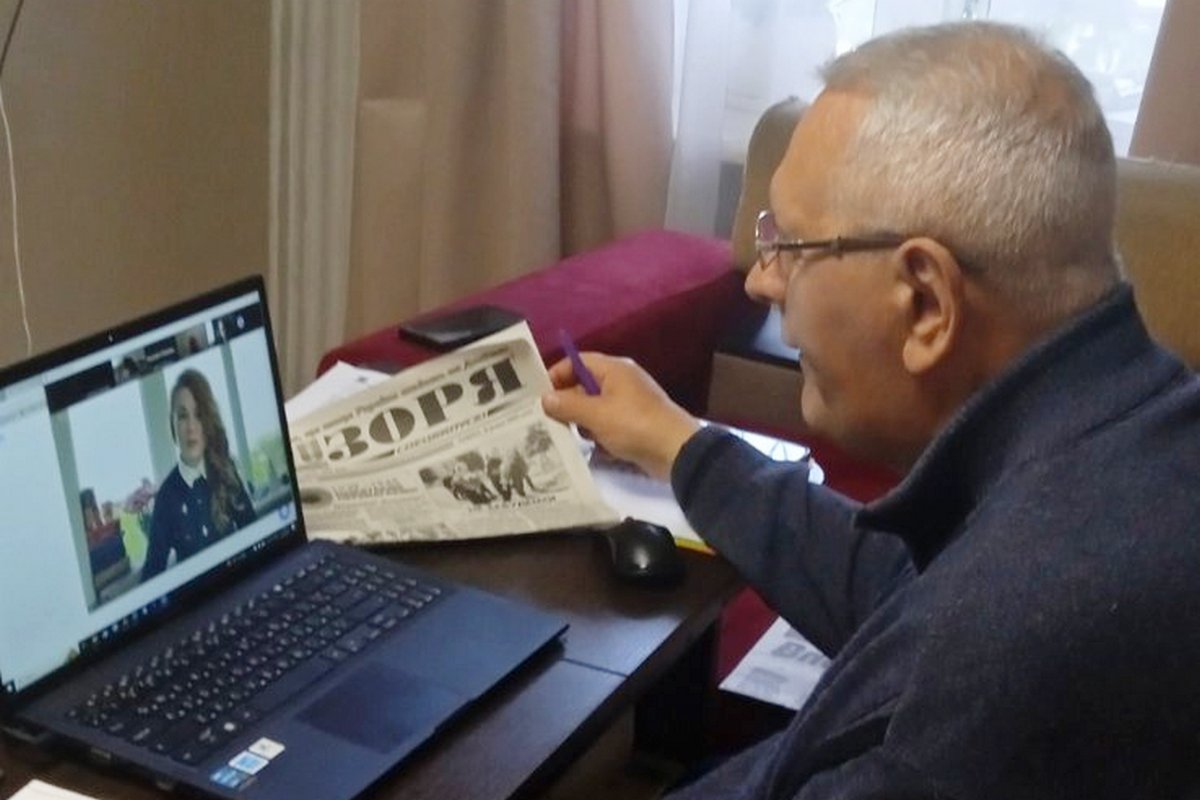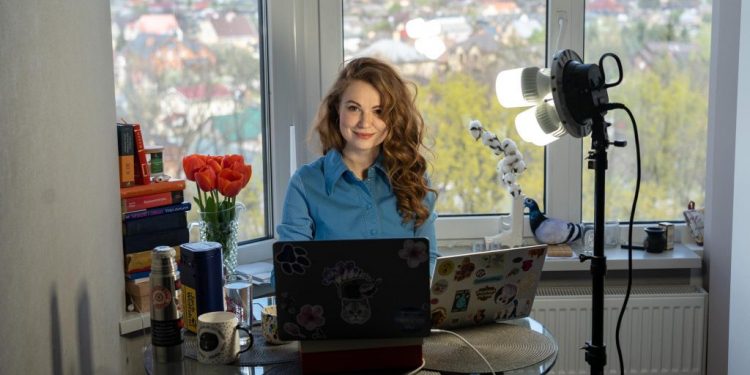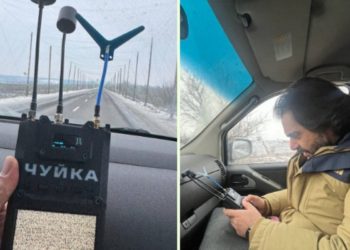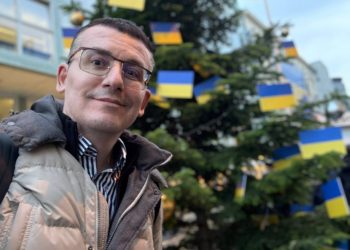“We started to write in new genres; we started to do things that were not done before,” this is how Yuliya Surkova, the mentor of the National Union of Journalists of Ukraine’s (NUJU) project titled Steps To Sustainable Development, evaluated the results of its implementation in a comment to the NUJU press service.
The project the NUJU conducted with the support of the Japanese government and UNESCO has been ongoing since May and covered 27 local publications from the front-line and de-occupied territories. The main task of the project is to help each publication get back on its feet, to modernize approaches to content creation, to gain knowledge about digital platforms for promoting media and finding new opportunities.
Ukrainian military journalist Yuliya Surkova, who cooperates with Agence France-Presse and the UN, was among those who transferred her knowledge and experience to the project participants – she was responsible for the content of publications (content).
“I saw the progress of the participants throughout the entire project,” says Yuliya. “There was, however, such a period when everyone was a little tired of completing the task, but in the end, they got together. At the last meetings, it became obvious that the new information received by colleagues benefited their publications. They began to write in new genres, began to do what they had not done before, for example, to address the authorities with informational requests.”
Project participants are also satisfied with the acquired knowledge and skills.
“We learned how to modernize our activities, what are the requirements for a modern interview in the world’s leading publications, how to approach familiar material in a new way… And not only this,” says Tetiana Kaushan, the editor-in-chief of the Putyvlski Vidomosti newspaper. “Someone could say everyone can familiarize themself with the best examples of world journalism. But in reality, we always lack time for self-education, and we work “on a rolling plane” from number to number. And I want to look at all this from the other side. It was possible with Yuliya. It was not a dry theory but a living example of the best, most modern journalistic work. It was wonderful. Thanks to the NUJU, it was a very useful project.”
Not all project participants, including both young and elderly people, ultimately got rid of age and gender stereotypes, but those who completed the project from start to finish now understand the importance of acquiring new modern knowledge in journalism.
“Every person has their own experience, but it needs to be replenished,” says the experienced editor-in-chief of the Lyman newspaper Zoria, Oleksandr Pasichnyk. “I was very interested in communicating with our mentors.”
“There is always something to learn,” adds Liubov Rudia, the editor-in-chief of the Silsky Novyny newspaper from Hornostayivka, Kherson Region. “We have experience in publishing paper newspapers, but now there are new technologies, and we have to learn them.”
Project participants pay attention to a number of common issues. Today, the press is helped by the NUJU, other Ukrainian journalistic organizations, and international donors. However, newspaper journalists understand that financial support cannot last forever, and the time will come when those publications, the output of which is currently supported by patrons, will have to fight for their lives.
“Unfortunately, not all local press has a clear perspective of their preservation and development,” Yuliya Surkova believes. “There are newspapers whose newsrooms consist of one person, and the future of such publications entirely depends on the enthusiasm of such a person. For example, one such newspaper is edited by a young woman who writes well, has an excellent understanding of journalistic standards, and is aware of what news stories are. But it is difficult for her to make a newspaper herself – both physically and psychologically, as well as financially. On the other hand, the publications that already have a newsroom, however small, I think have good prospects.”
The educational project Steps To Sustainable Development” was conducted by the NUJU with the support of the Japanese government and UNESCO. A total of 27 printed publications from the front-line and de-occupied territories of Ukraine took part in it. The events took place both in the form of webinars and in the form of individual consultations, during which participants can talk to a mentor, ask practical questions, and receive specific answers. At the last stage, publications selected by mentors performed practical tasks. The mentors were: secretary of the NUJU, editor-in-chief of Obrii Iziumshchyny Kostiantyn Hryhorenko (financial and economic component), military journalist cooperating with AFP and the UN Yuliya Surkova (content) and journalist, and media trainer of the Ukrainian Press Academy Andrii Yurychko (digitalization).

ABOUT UNESCO
UNESCO is the United Nations Educational, Scientific, and Cultural Organization. It contributes to peace and security by promoting international cooperation in education, sciences, culture, communication, and information. UNESCO promotes knowledge sharing and the free flow of ideas to accelerate mutual understanding. It is the coordinator of the UN Action Plan on the Safety of Journalists and the Issue of Impunity, which aims to create a free and safe environment for journalists and media workers, thus strengthening peace, democracy, and sustainable development worldwide. UNESCO is working closely with its partner organizations in Ukraine to provide support to journalists on the ground.
The designations employed and the presentation of material throughout this digest do not imply the expression of any opinion whatsoever on the part of UNESCO concerning the legal status of any country, territory, city, or area or its authorities or concerning the delimitation of its frontiers or boundaries.
The authors are responsible for the choice and the presentation of the facts contained in this digest and for the opinions expressed therein, which are not necessarily those of UNESCO and do not commit to the organization.
NUJU Information Service

 THE NATIONAL UNION OF
JOURNALISTS OF UKRAINE
THE NATIONAL UNION OF
JOURNALISTS OF UKRAINE
















Discussion about this post